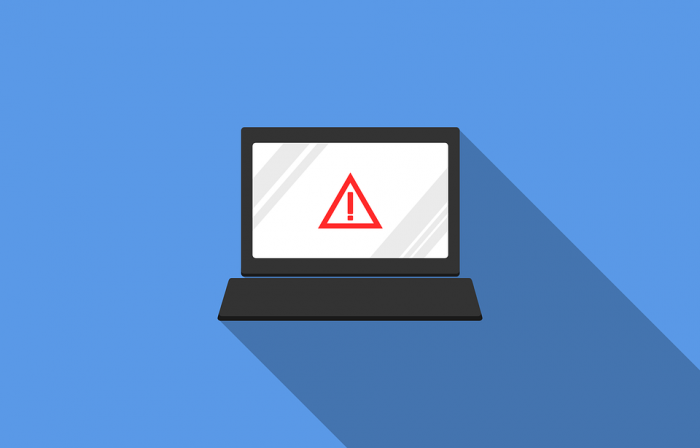Cybersecurity: A Home Business Guide
With so many snoopers and malicious users lurking online, keeping your confidential business data safe and private may seem like a real challenge. But if you ignore the dangers and don’t take necessary precautions to protect yourself, someone may be watching you without you even noticing.
It’s strange that many of us still tend to ignore the fact that anyone could become a victim of cybercrime, especially with the numbers showing that around half of small companies suffer from cyber attacks. The truth is, small partnerships and individual entrepreneurs are at even greater risk because many of them do not have basic cybersecurity knowledge and proper tools to protect their businesses.
Hackers may target small businesses for a number of reasons but most of the time they benefit from getting access to sensitive financial information, such as bank passwords, Social Security Numbers or credit card details. Losing such data is a nightmare for anyone, and it can happen to anyone, at any time.
Therefore, the sooner you start improving your home business security, the better. Here’s how you can do this effectively, without wasting your time and money.
1. Beware of Phishing Scams
Phishing is a simple and very effective technique often used by malicious actors to get login details from Internet users or infect their devices with malicious software.
Phishing starts with a scammer pretending to be a representative of the service you trust, e.g., your bank or an ISP (Internet Service Provider). They may contact you by phone, text or email asking you to “click here” to confirm your personal details or download an “important attachment.” Such messages usually demand to take an urgent action, which is a clear indicator they are nothing but phishing attempts.
Be critical with such requests: never send your private information via email, and do not even think about opening attachments from unknown senders. If you are worried about your account, it’s always better to call your bank directly and double check.
To avoid phishing messages, use spam filtering. It won’t let obvious spam emails into your main inbox.
2. Be Smart About Your Passwords
An original, unique, complex password is crucial to keep your account safe from cybercriminals. Everyone knows that, and yet most people tend to ignore this tip, leaving their private data up for grabs.
It’s always worth repeating: having “123456,” “password,” “starwars,” or “iloveyou” is as safe as having no password at all. And yet, these were the most popular passwords in 2017 and many previous years. So if you don’t like the fact that someone may be reading your emails as you read this article, it may be a good idea to review your passwords and change them if you are using weak ones.
It’s also important to take good care of your passwords so they won’t get in the hands of cybercriminals. Change them at least once in 6 months, don’t share your passwords with anyone, especially over the Internet, and never use the same password for multiple accounts.
3. Set Up 2FA Wherever You Can
Most popular account services, like Gmail, Facebook, Twitter, or Instagram, offer 2FA (Two Factor Authentication). To put it simply, 2FA protects your account with an additional layer of security, meaning that if a hacker manages to guess your Gmail password, they still won’t be able to access your account.
To log into an account protected by 2FA, you will need something you know (e.g., password) and something you have (e.g., your smartphone).
4. Don’t Skip Software Updates
You’re in the middle of your work, and a pop-up message suddenly appears on the screen suggesting to install a software update. You don’t have time to deal with this right now, so instead of clicking “Install,” you hit “Cancel,” thinking to update later, but never do that. Sounds familiar?
We all have done that, but it’s time to stop skipping software updates as they often bring security patches for latest security vulnerabilities. Remember the Equifax data breach that compromised the data of 147.9 million people? Well, the attack could have been avoided, because the patch for this security hole had been available for months before the breach.
Lesson learned: by postponing software updates, you basically invite cybercriminals to attack your device.
5. Be Extra Careful with Free Wi-Fi
Who doesn’t love free Wi-Fi? It gives you the freedom to work from pretty much everywhere: your favorite coffee shop, a hotel room, an airport, or a public park if you prefer it that way. It’s usually safer to use Wi-Fi from home, but you may just need to get out now and then. There’s one big problem with public Wi-Fi networks; they often lack proper cyber protection, so by using them you pay another price: your data.
Essentially, if a malicious hacker manages to intercept your connection, they can see everything you do on the Internet: your Google searches, websites visited, and even passwords you type to log in to your accounts.
Good news is that you can still enjoy the benefits of free Wi-Fi without putting your sensitive business information at risk. To do so, download a VPN (Virtual Private Network) app to your device. Once enabled, VPN hides your IP address and creates an encrypted connection, making your communications invisible for malicious actors.
One thing to keep in mind when looking to try a new VPN – take time to do your research and choose a reliable provider. For example, NordVPN is known for using the most trusted encryption protocols to secure their users’ data and offers easy-to-use apps for all popular operating systems: iOS, Android, macOS, and Windows.
The post Cybersecurity: A Home Business Guide appeared first on Home Business Magazine.


















Post a Comment